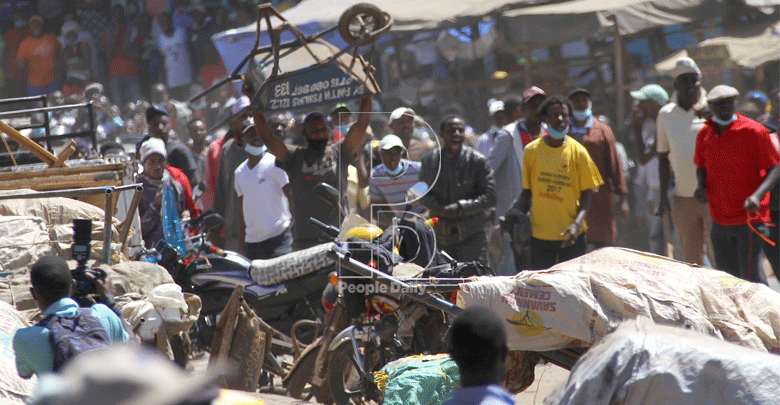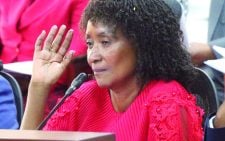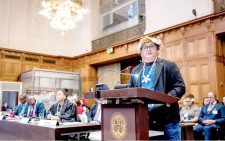Increasing political intolerance recipe for anarchy

By Adhere Cavince
The past few days have seen Kenyans treated to high drama, vitriol and violence as a result of the deepening political intolerance in the country. Stones were hurled at political competitors; expletives flew around while some legislators even engaged in a vicious fistfight at a funeral in Kisii County. In letting these practices to thrive, the country is fashioning a destructive end with regards to democratic consolidation, constitutionalism and national wellness.
A democratic culture demands political tolerance – an environment that allows all players to freely share their ideas, opinions, and political products. On the contrary, Kenya is slowly turning into compartmentalized spaces where freedoms of speech and association are apportioned on the basis of political correctness. The culprits are often cheered on by an overzealous public while the victims swiftly look for opportunities to turn the tables. Accessing Kenya’s marketplace of ideas is increasingly difficult, yet political tolerance is a key measure and guarantor of freedom.
Political bigotry breeds so many ills to a country. By inhibiting free speech, the electorate is deprived the opportunity to debate and identify progressive ideas and leaders. Even those with bad ideas are not afforded fair assessment and feedback. Consequently incompetent leaders often foot public offices with little capacity to make meaningful changes.
It is an appreciable fact that Kenyan politics runs largely on ethnic software. Political intolerance is therefore operationalized along ethnic lines. This carries real implications for national unity and cohesion. When people begin to see a whole community as being adversative to their political agenda, it erodes the foundation of peaceable coexistence and harmony. Past instances where political intolerance took ethnic manifestation never ended well for the country. It is therefore alarming that cases of intolerance are increasing in the backdrop of heightening political campaigns ahead of the 2022 elections.
Intolerance stifles entrepreneurship and investments. Kenyans have lost property and business opportunity when rival political groupings clash. In the past post-poll chaos, businesses and investments were uprooted and decimated. Locals engaged in such enterprises lost livelihoods and the economic viability of the nation severely threatened.
Culturally, intolerance has ripped apart many families and stopped young people from looking beyond their tribe in search of life partners. Yet interethnic marriages are critical ingredients in cementing a more agreeable and peaceful society. Even in the realm of education and exchanges, political stifle innovation and progress because of ethnic balkanization within research and academic institutions.
Such foreboding implications of political intolerance should nudge all Kenyans to consolidate our democratic aspirations by telling off perpetrators. Failing to cut out toxic voices will entrench the practice whose harmful effects have been reordered in countless societies around the world.
Young people desirous of going into politics shouldn’t model their vision on intolerance. They should be willing to countenance ideas which do not resonate with their own and actively seek support on the basis of peaceful transactions of political merchandise.
One step towards this vision is to ensure that all institutions tasked with national security, law and order, national cohesion and societal wellness, spring into action and deny promoters of intolerance the space to peddle their retrogressive ideas. Similarly, the media should be judicious in facilitating exchanges that are likely to fuel unhealthy dissent among Kenyans.
Twitter: @Cavinceworld.












